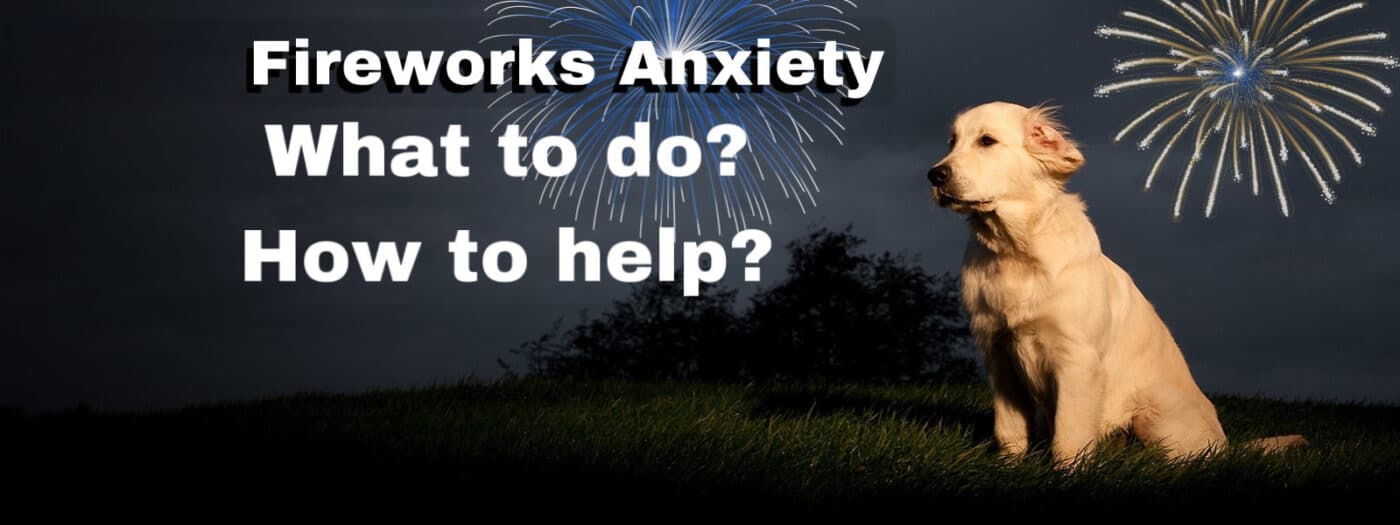4th of July, Dog Fireworks Anxiety, Noise Phobias
A Comprehensive Guide to Safeguarding Dogs with Fireworks Anxiety on the 4th of July
Posted on by Dog Behaviorist
by Will Bangura, M.S., CBCC-KA, CPDT-KA, FFCP, (Dog BEhaviorist), Certified Dog Behavior Consultant
Part 1: Understanding the Situation and Preparation
Understanding your dog’s anxiety and providing the right comfort is imperative, especially on occasions such as the 4th of July when fireworks are inevitable. Fireworks can be a source of terror for dogs, who are naturally sensitive to loud noises and bright lights. The unfamiliar, unpredictable nature of these explosions can cause severe stress and panic. The first 1500 words of this comprehensive guide will delve into the reasons for dogs’ fireworks anxiety and the steps you can take to prepare for the occasion.Understanding Your Dog’s Fireworks Anxiety:
The anxiety dogs experience during fireworks can be attributed to their keen senses. They have a heightened sense of hearing, allowing them to hear sounds that are far beyond human capacity. As such, the loud, explosive sounds of fireworks can be overwhelming. They may perceive these sounds as threats, triggering their fight-or-flight response. Furthermore, the bright, sudden flashes of light and the smell of gunpowder can add to their disorientation and stress. In reaction to this stress, dogs may exhibit behaviors such as whining, barking, pacing, hiding, and trying to escape. These responses are a clear indication that your pet is distressed and requires your attention and care.Vet Consultation:
Start by consulting your vet in the weeks leading up to the 4th of July. This consultation is important to discuss your concerns about your dog’s fireworks anxiety, understand the severity of their fear, and explore potential treatments. Your vet might suggest anxiety medications, over-the-counter calming aids or recommend a veterinary behaviorist for severe cases. These steps will equip you with the tools you need to provide your pet with a safe and comfortable environment.Training and Conditioning:
One effective strategy is to help desensitize your dog to the sound of fireworks. This process involves gradually exposing them to recorded fireworks sounds, starting at a low volume and slowly increasing it over time. Pair this exposure with positive reinforcement like treats, toys, or praise. This conditioning process should be done over several weeks or months, so planning well ahead of the holiday is essential.Create a Safe Space:
Designate a specific, quiet area in your home where your dog can retreat to when the fireworks start. This could be their crate if they’re crate-trained or a separate room that’s away from windows and external noise. Equip this space with their favorite toys, a comfortable bed, and some pieces of your clothing to provide them with a sense of security. Ensure this area is accessible at all times.Use Calming Aids:
There are several calming aids available that can help soothe your dog. Anxiety wraps, or pressure vests work on the concept of applying gentle, constant pressure on your dog’s torso, producing a calming effect similar to swaddling an infant. Pheromone diffusers and sprays mimic calming canine pheromones and can help to reduce anxiety.Ensure Safety:
Ensure all doors, windows, and gates are secure to prevent your anxious dog from bolting out in fear. In case of any unfortunate instances, ensure your dog’s ID tags are updated and they’re microchipped with all the current contact information.Diet and Exercise:
A well-exercised dog is more likely to be calm. Schedule a long walk or a vigorous play session during the day before the fireworks. Avoid feeding them large meals in the evening, as anxiety can cause digestive issues. A treat-dispensing toy during fireworks can keep them distracted and associate the noise with positive experiences.Practice Fireworks Etiquette:
Encourage your neighborhood to follow fireworks etiquette, such as using noiseless fireworks or setting them off in a designated area away from houses with pets. Community effort goes a long way in creating a safer environment for all animals. Fireworks anxiety in dogs is a serious issue and understanding your dog’s behavior is the first step in helping them navigate this stressful time. Careful preparation and following these steps can help you significantly in providing comfort to your anxious furry friend. The next half of this guide will delve deeper into how to handle your dog during the fireworks, post-fireworks care, and what to do in case of emergencies. As the fireworks commence, your role as a pet parent becomes crucial in managing your dog’s anxiety. Your actions during this time, along with appropriate post-fireworks care and preparedness for emergency situations can significantly mitigate your pet’s distress.During the Fireworks:
- Stay Calm and Composed:
- Distract and Comfort:
- Use Noise Masking:
- Be Patient:
Post-Fireworks Care:
- Check for Injuries:
- Provide a Quiet Environment:
- Reward Calm Behavior:
- Consult Your Vet:
- In Case of Escapes:
- In Case of Injury:
- In Case of Severe Panic Attacks:
- Pet Insurance:
Facebook
Twitter
LinkedIn


